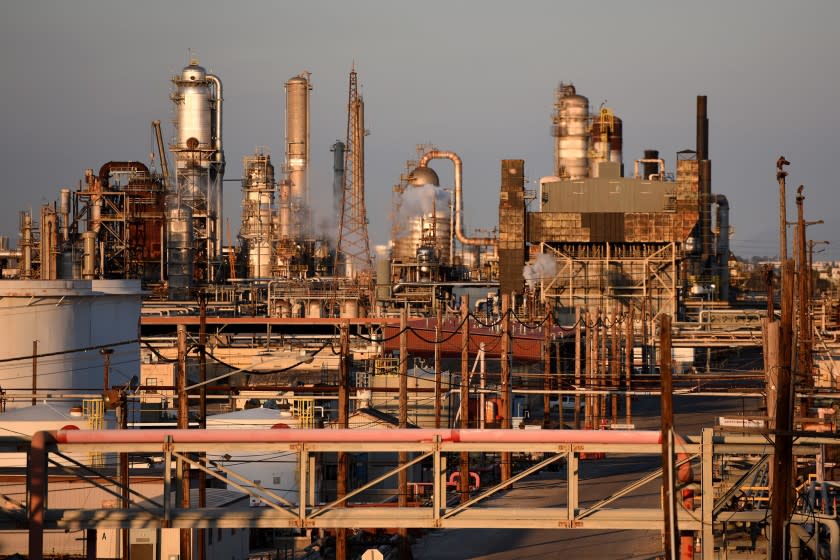California lawmakers vote to phase out toxic firefighting foam

California lawmakers voted Sunday to phase out the sale and use of firefighting foam containing toxic chemicals that have been linked to cancer and have contaminated drinking water throughout the state.
The measure, put forward by state Sen. Ben Allen (D-Santa Monica), requires municipal fire departments, chemical plants and oil refineries to gradually stop using the foam, replacing it with alternatives that don't contain perfluoroalkyl and polyfluoroalkyl substances, a class of chemicals commonly known as PFAS.
Scientists have called PFAS "forever chemicals" because they persist indefinitely and accumulate in the human body. Exposure to them has been linked to kidney and testicular cancer, as well as high levels of cholesterol, thyroid disease and other serious health problems.
These chemicals have been used for decades in household products including nonstick pans, stain-resistant furniture and food packaging. But a significant amount of drinking-water contamination comes from their use in firefighting foam, which has been widely employed on military bases, at airports and at industrial sites. Some fire departments keep it on hand to quickly extinguish car or airplane fires.
When the foam is sprayed on a fire, the chemicals can soak into the soil, eventually ending up in groundwater.
PFAS contamination is widespread in California and in much of the United States. Tests conducted by state regulators last year found 300 drinking-water wells and other water sources that had traces of the chemicals.
The military's decades-long reliance on PFAS-containing firefighting foam has left its mark as well — at least 21 military bases in the state have been contaminated, including six where the chemicals threaten the water supply in nearby communities.
Under the new legislation, which awaits approval by Gov. Gavin Newsom, municipal fire departments will be banned from using PFAS-containing foam by Jan. 1, 2022. Chemical plants and airport hangars have until 2024.
Oil refineries, which fought to be exempt from the prohibition, will be required to stop using the foam by 2028, unless they qualify for a waiver. If there's a fire and they spray the foam, they will be required to report the use to the state and contain the spread, so that the chemicals do not leach into groundwater.
"Obviously we're anxious to get PFAS out of the stream, but we wanted this to be workable," Allen said, adding that changing how industries respond to fires would probably require expensive investments in new infrastructure.
"We wanted to give more time to those facilities that have the potential for more dangerous fires," he said.
The legislation also sets new rules for how foam that contains PFAS can be disposed of. Within California, the foam must be transported safely and stored — a recognition that scientists have yet to agree on the best way to get rid of products with chemicals that don't break down.
Avinash Kar, an attorney for the Natural Resources Defense Council, an environmental advocacy organization that supported the phaseout, said California's legislation is among the toughest in the country. States including Colorado and Washington have set bans on the sale of the foam, but California's bill prohibits continued use, preventing businesses from stockpiling a product tainted with toxic chemicals.
"With the refineries and terminals, we do think they can probably transition sooner" than the deadlines set in the legislation, Kar said.

